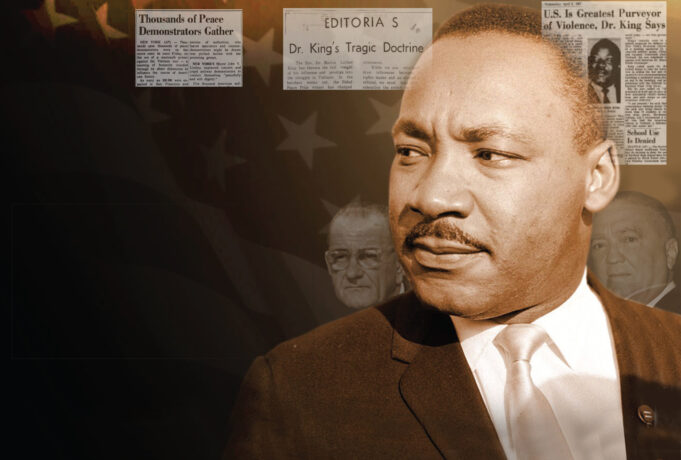An enemy of the state:’ While celebrations of a holiday in his honor focus on a dream, Martin Luther King was condemned, but fearless in his last days
August 28, 1963, a man had a dream. By the time he had come to the end of his life, he had been to the mountaintop. But between the dream and the mountaintop, he would evolve, and he would see the ugliness of humanity rear its head.
During the last year of Dr. Martin Luther King Jr.’s life, he was harassed, ostracized and denied by his own people, by major newspapers and by the U.S. government. His stand against militarism, economic issues and injustice all over the world cost him his life.
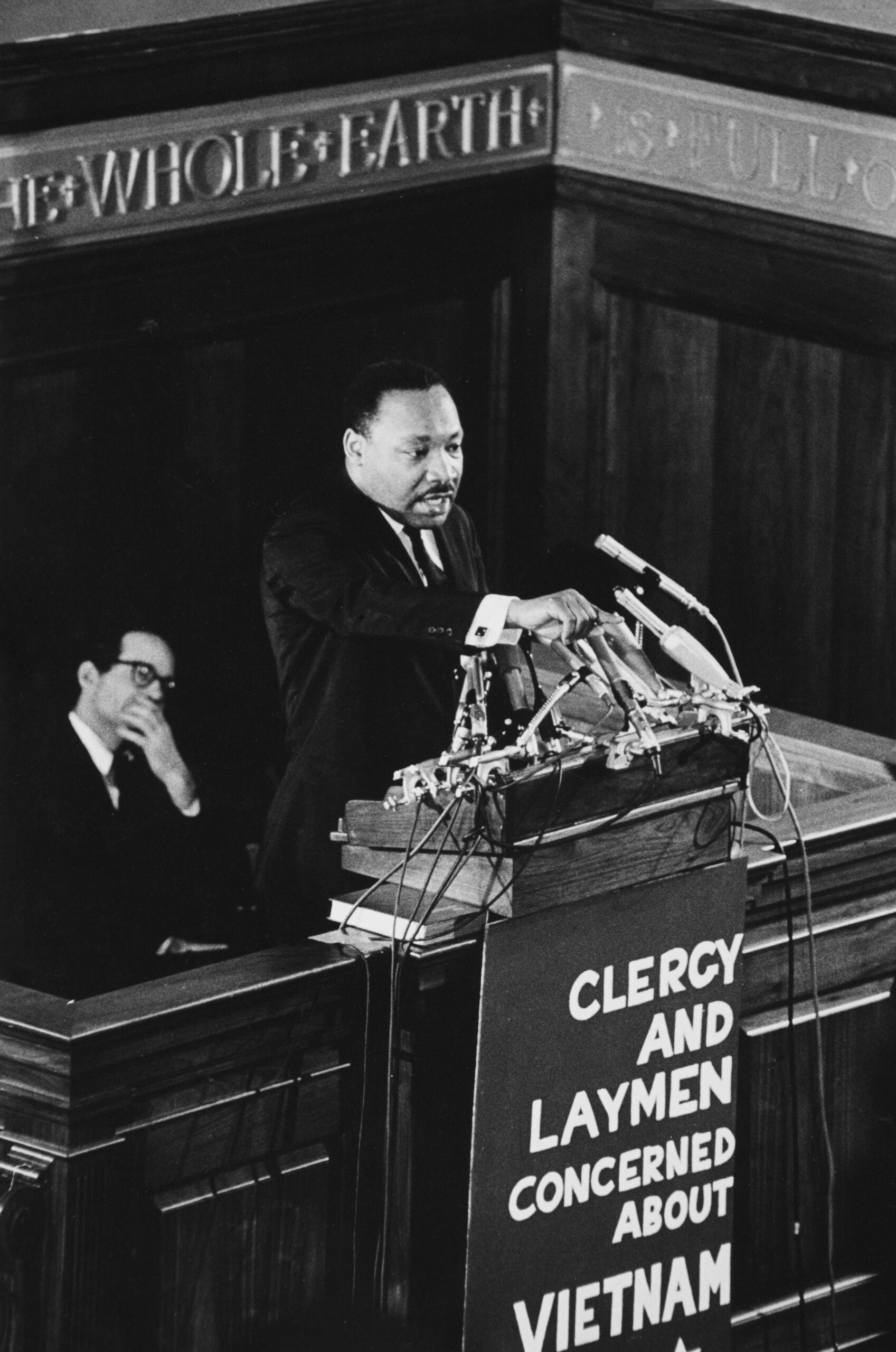
But he “would rather be dead than be afraid” was one of the last statements he uttered before walking out on the balcony of his Lorraine Motel room in Memphis, where he was killed, according to talk show host Tavis Smiley, who authored the book “Death of a King: The real story of Dr. Martin Luther King Jr.’s final year.”
“He was climbing up the rough side of the mountain at the end of his life, and everybody knows that last speech he gave where he says, ‘I may not get there with you’ and ‘we will get to the promised land.’ And people look at that one speech and say, ‘Yeah, Dr. King knew that night that he wasn’t going to make it,’” Mr. Smiley told The Final Call. “Well, it wasn’t just that one night. Dr. King knew that many, many nights prior to that, because a year prior to that he had given this speech and all hell had broken loose.”
April 4, 1967, at the Riverside Church in New York City, on the very day he would die one year later, Dr. King delivered one of the most pivotal speeches of his life, “Beyond Vietnam—A Time to Break Silence.”
During the speech, he linked the war on Vietnam to poverty in the U.S. and to the struggle of Black people. He called it a “cruel manipulation of the poor,” as young Black men who were already crippled by American society were being sent to kill and die. He spoke out against America’s meddling in the affairs of Vietnam, condemned America for destroying and corrupting the people and called upon the madness to cease.
“This business of burning human beings with napalm, of filling our nation’s homes with orphans and widows, of injecting poisonous drugs of hate into the veins of peoples normally humane, of sending men home from dark and bloody battlefields physically handicapped and psychologically deranged, cannot be reconciled with wisdom, justice, and love. A nation that continues year after year to spend more money on military defense than on programs of social uplift is approaching spiritual death,” Dr. King warned.
He delivered the speech against the advice of his own staff. The press was given a written copy of the speech in advance.
“By the time he got done delivering it, the press knew everything he said. They had exact quotes, because they had copies of it. I raise that because he’d never done that before,” Mr. Smiley said. “And by the time he got done giving that speech later that night and the next morning, they ripped him to shreds. The news media, the massive news media, the local media all across the country. They ripped him to shreds, and the headlines in these ‘liberal papers,’ these liberal publications, Time, Newsweek, The New York Times, The Washington Post, The LA Times … .”
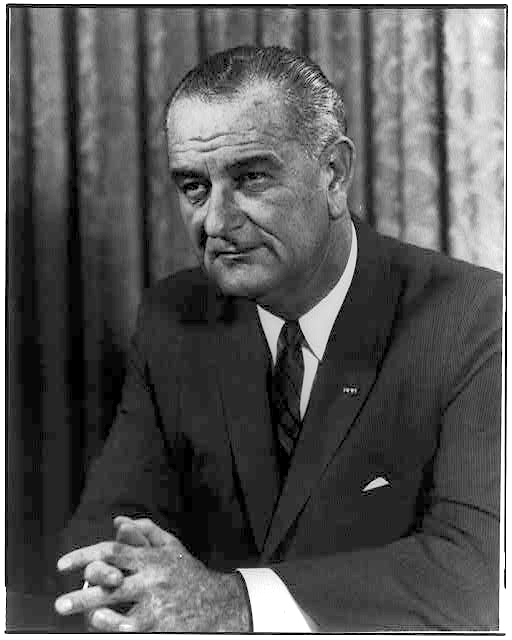
In total, 168 major newspapers denounced Dr. King. The New York Times editorial board accused him of fusing “two public problems that are distinct and separate” and making “too facile a connection between the speeding up of the war in Vietnam and the slowing down of the war against poverty.” The Washington Post editorial board said King had “diminished his usefulness to his cause, his country and his people.”
After the speech, President Lyndon B. Johnson reportedly questioned, “We gave him the Civil Rights Act of 1964, we gave him the Voting Rights Act of 1965, we gave him the War on Poverty. What more does he want?”
Not only was Dr. King vilified in the major newspapers of that day, but the Black media also spoke out against him.
“Carl Rowan, who was at that time one of the few Black national journalists, said he was disappointed in his speech. It wasn’t just a firestorm that came from the White House and so forth,” said Dr. Ray Winbush, director of the Institute for Urban Research at Morgan State University, to The Final Call. “I was surprised, and I remember that period, that Black folk, ‘Why is he talking about the Vietnam War? He’s supposed to be talking about civil rights and economics.’ As if Dr. King only had one thing to talk about. He was talking about, throughout his whole life, the issue of justice.”
Black civil rights leaders also turned on Dr. King. Roy Wilkins of the NAACP and Whitney Young of the National Urban League condemned him. Baseball player Jackie Robinson distanced himself. Colleges, universities and Black churches rescinded their invitations.
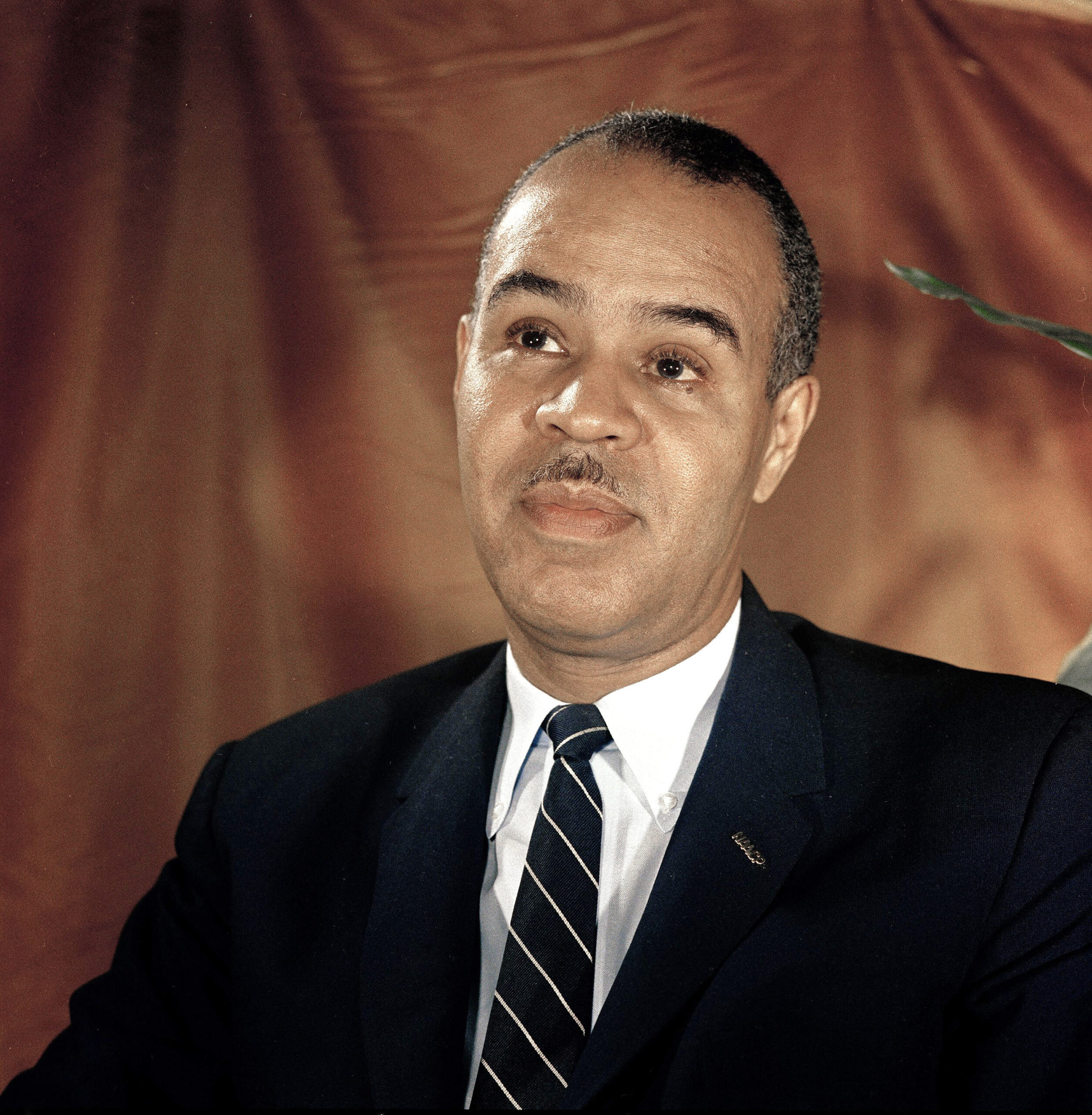
“Dr. King, up until that point, had never been treated so viciously by the mainstream media all at one time. King was the darling of the civil rights movement. He’s a Nobel Peace Prize winner, but they all turned on him in a moment,” Mr. Smiley said.
Dr. Winbush attributed Black people’s treatment of Dr. King to the “White gaze.”
“There’s some people who feel that if you say something against White people’s policies, government or whatever, they feel nervous about that, and they’re under the White gaze. Dr. King wasn’t under the White gaze,” he said.
As America turned on Dr. King, he continued his work in advocating for the poor and oppressed. In 1968, he launched the Poor People’s Campaign with the goal of tackling economic injustice. He planned to camp out on the National Mall until Congress made a concerted effort to address poverty, but he was assassinated before he saw his plans through.
“They weren’t trying to hear him on Vietnam. They weren’t trying to hear him on the Poor People’s Campaign. There’s a target on his back. And lo and behold, one year to the day later, almost to the very hour … they killed him,” Mr. Smiley said.
After his death, Dr. King’s wife, Coretta Scott King, and civil rights leader Ralph David Abernathy continued the Poor People’s Campaign, setting up an encampment named “Resurrection City.” The city housed thousands of people and lasted for six weeks until police forcibly shut it down, showing up in riot gear, evicting inhabitants and making arrests.
“You know, you may think that Dr. Martin Luther King Jr. is a ‘dreamer.’ I beg to differ with you,” wrote the Honorable Minister Louis Farrakhan, in an article titled “Dr. Martin Luther King Jr: Not a ‘Dreamer,’ but a Man Evolving Toward a Common Goal For His People.”
Though Dr. King spoke at the base of the Lincoln Memorial in 1963, the civil rights leader’s views didn’t end there, the Minister said.
He pointed to a different speech, “The Crisis in America’s Cities: An Analysis of Social Disorder and a Plan of Action Against Poverty, Discrimination and Racism in Urban America,” to the Southern Christian Leadership Conference in Atlanta on August 15, 1967.
In that message, Dr. King said, “The policymakers of the White society have caused the darkness; they created discrimination; they created slums; they perpetuate unemployment, ignorance and poverty. … [So] when we ask Negroes—or Black men and women—to abide by the law, let us also declare that the White man does not abide by law in the ghettos. Day in and day out he violates welfare laws to deprive the poor of their meager allotments.
He flagrantly violates building codes and regulations. His police make a mockery of law. He violates laws on equal employment and education and the provisions for civil services. The slums are the handiwork of a vicious system of the White society; Negroes live in them but do not make them any more than a prisoner makes a prison,” Dr. King stated.
“That’s not the talk of a ‘dreamer.’ That’s the talk of a bold preacher who confronted the reality of White racism,” said Min. Farrakhan, who spoke of Dr. King’s courageous stand against the Vietnam War and America’s global wrongdoing. Dr. King also pointed to a “White backlash” against justice and freedom for Black people, the Minister added.
COINTELPRO and the Black Messiah
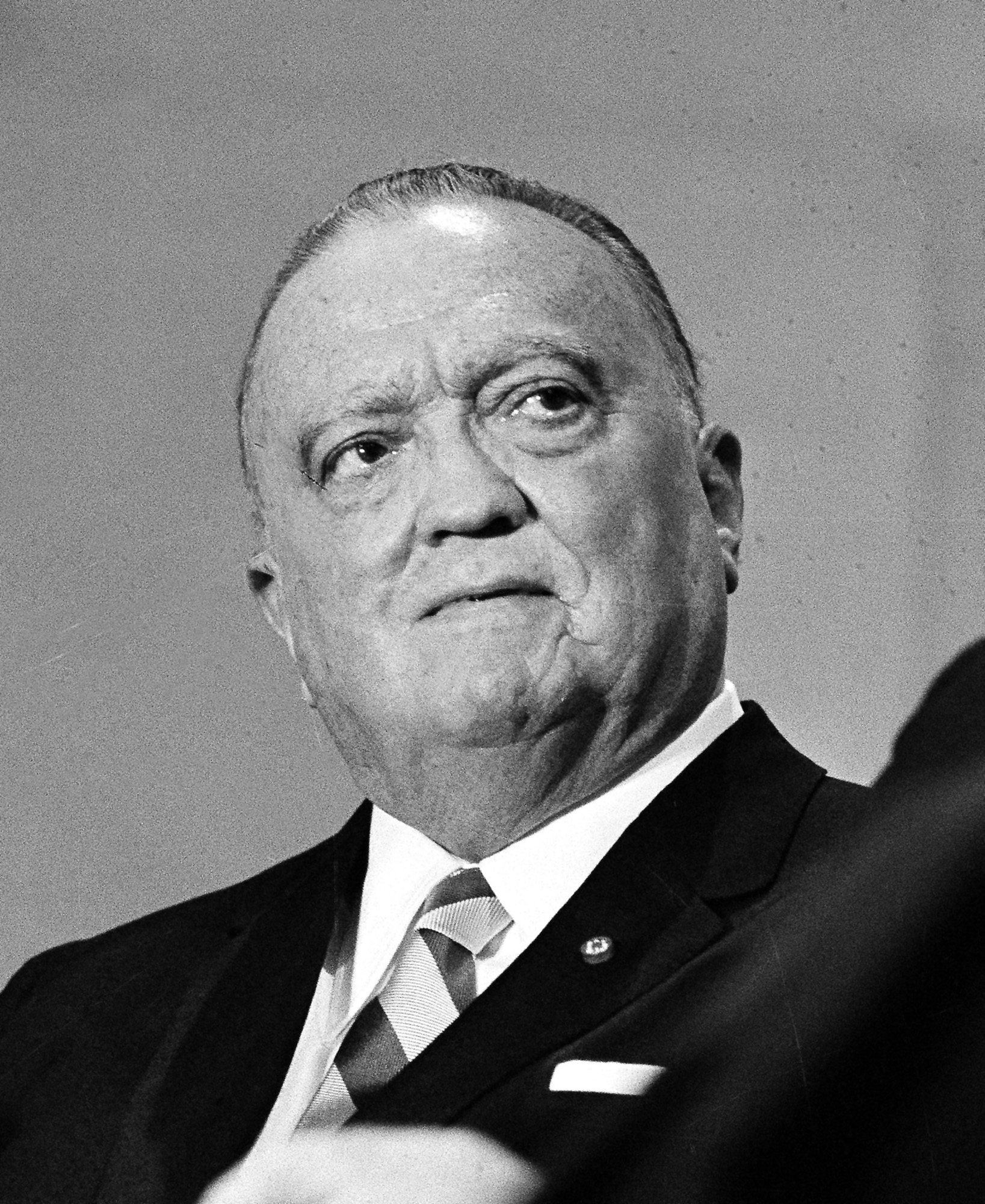
Along with the public campaign waging war against Dr. King’s character, the U.S. government, through the FBI’s Counterintelligence Program, viewed his life as a threat.
“I think the key to the final years of Dr. King’s life can best be understood from how the U.S. government viewed him and how he was written of by J. Edgar Hoover in the COINTELPRO memos,” said Memphis-based Nation of Islam author, researcher and Student Minister Demetric Muhammad to The Final Call.
In the program’s memos, FBI director J. Edgar Hoover discusses the rise of a Black Messiah and the candidates who would fit the role. He named both Dr. King and the Honorable Elijah Muhammad, the Eternal Leader of the Nation of Islam, as candidates. The two great, Georgia-born Black men would meet each other on February 24, 1966.
“When he discussed the potentiality of Dr. King being a Black Messiah, he said that it would be dependent upon whether or not Dr. King would abandon White liberal doctrines,” Demetric Muhammad said. “Well, in the last years of Dr. King’s life, there are signs that he was abandoning so-called White liberal doctrines. Integration was a White liberal doctrine. And Dr. King, at a certain point, said that he had begun to see how at least a temporary separation might be necessary in route to a fully integrated society.”
Demetric Muhammad penned an essay, “Was Dr. Martin Luther King, Jr., a Black Muslim,” where he discusses Dr. King and the Honorable Elijah Muhammad. Like Dr. King, the Nation of Islam stood against the war on Vietnam, with Muslims, including Muhammad Ali, refusing induction into the draft. Dr. King supported the outspoken Ali’s refusal to go into the armed services.
“When Dr. King began to make these kinds of statements, then J. Edgar Hoover began to oppose him more aggressively. They sent letters to Dr. King encouraging him to commit suicide. If he didn’t commit suicide, they would make him the subject of a public scandal,” Demetric Muhammad said. “They also sent letters to his wife, claiming that Dr. King had been unfaithful to his wife. Then, it came out that even at his assassination, there were agents and informants part of those who were close to Dr. King.”
Dr. Winbush described how at that time Dr. King was considered to be the greatest threat to American democracy, almost like an “enemy of the state.”
“He said, ‘I fear that I am integrating my people into a burning house.’ And the burning house was the United States,” the professor said. “And when I look at all these ceremonies that will occur in a week or two, I say, man, King. What happened to the King that I knew? He was a rough brother. He shot pool. He hung out with people.”
“People forget that he smoked, and that wasn’t right. He shouldn’t have been smoking. But now he’s like Saint Martin Luther King or something. We should remember the King not that they’re trying to get us to remember but the King that actually was,” he continued.
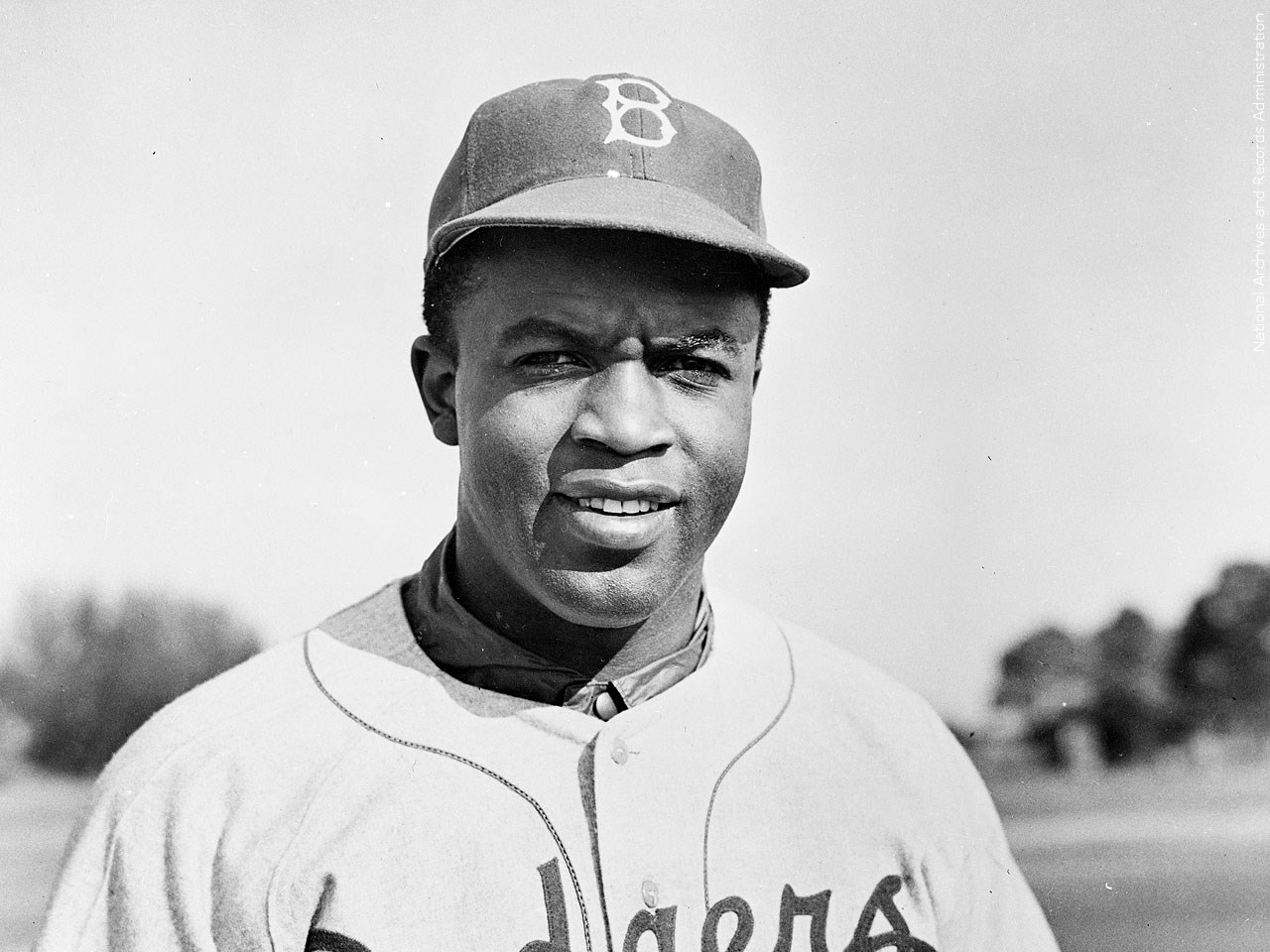
Dr. King’s condemnation of militarism
Throughout his life, Dr. King saw a triple threat facing American democracy: racism, poverty and militarism.
“The triple threat he raised then—racism, poverty and militarism—are still the same threats that face our democracy today,” Mr. Smiley said.
“If King were here today, we’d be found wanting. He’d be sorely disappointed on the real work that’s being done, the real work that needs to be done on reducing poverty, eradicating poverty, ending racism, and reducing military threat in this country and around the globe,” he said.
President Joe Biden recently authorized $768.2 billion in defense spending, a five percent increase and $25 billion more than what was initially requested. The recent increase in military spending echo back to Dr. King’s words on budgets being moral documents.
“Dr. King was saying to the government of America, your annual budget is a moral document, and looking at where you have chosen to spend your money is an indictment against your claim to be a moral authority on the world stage,” Demetric Muhammad said. “So you put all of this money into the military, yet there are homeless people and people living under bridges. There are people who are living in poverty. There are people who are suffering. There are people who sincerely need assistance to be on a level playing field that they might have a chance to live the so-called American dream.”
Dr. Winbush said it’s amazing how presidents end their speeches with “God bless our troops,” as President Biden recently did when addressing the Jan. 6 insurrection. “It sends a message out there: don’t forget about us being the greatest military power on earth and all the money,” Dr. Winbush said. “Your one cruise missile could fund the school budgets of several Black areas and towns in this country. One cruise missile. And that money is wasted.”
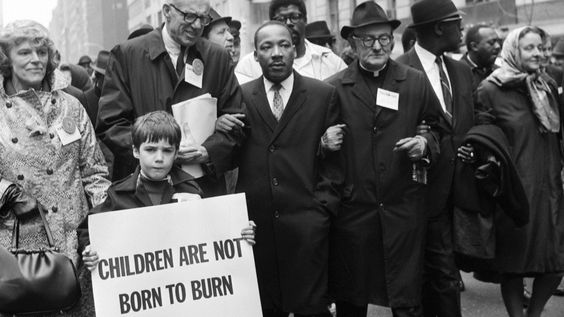
As America ups her military spending, Dr. King’s family is pressuring the president and lawmakers who have stalled on voting rights legislation. They are calling for no celebration of MLK Day without the passage of federal voting rights bills.
The family “will not accept empty promises in pursuit of my father’s dream for a more equal and just America,” said Martin Luther King III, the oldest son of Dr. King and Coretta Scott King, in a statement.
His sister, Dr. Bernice King, CEO of The King Center, stood in solidarity. She said if voting rights is still hanging in the balance by MLK Day on Jan. 17, “… instead of taking the King Holiday off, they should make it a ‘day on’ to pass the voting rights acts.”
Learning the real Dr. King
Dr. Winbush was a 20-year-old college student when Dr. King was assassinated. He said he doesn’t think White supremacy has changed, in terms of trying to suppress the history of Black people and people of color in America. People need to read Dr. King’s words for themselves, he said.
“A lot of people don’t know that he had a Chicago campaign, that he met with Malcolm, that he went to Africa and met with Nkrumah when Ghana became independent in 1957. They don’t know that history because they haven’t read anything about Dr. King. They look at news clips with him saying ‘I have a dream,’ ‘I’ve been to the mountaintop,’ and that’s all they know,” he said.
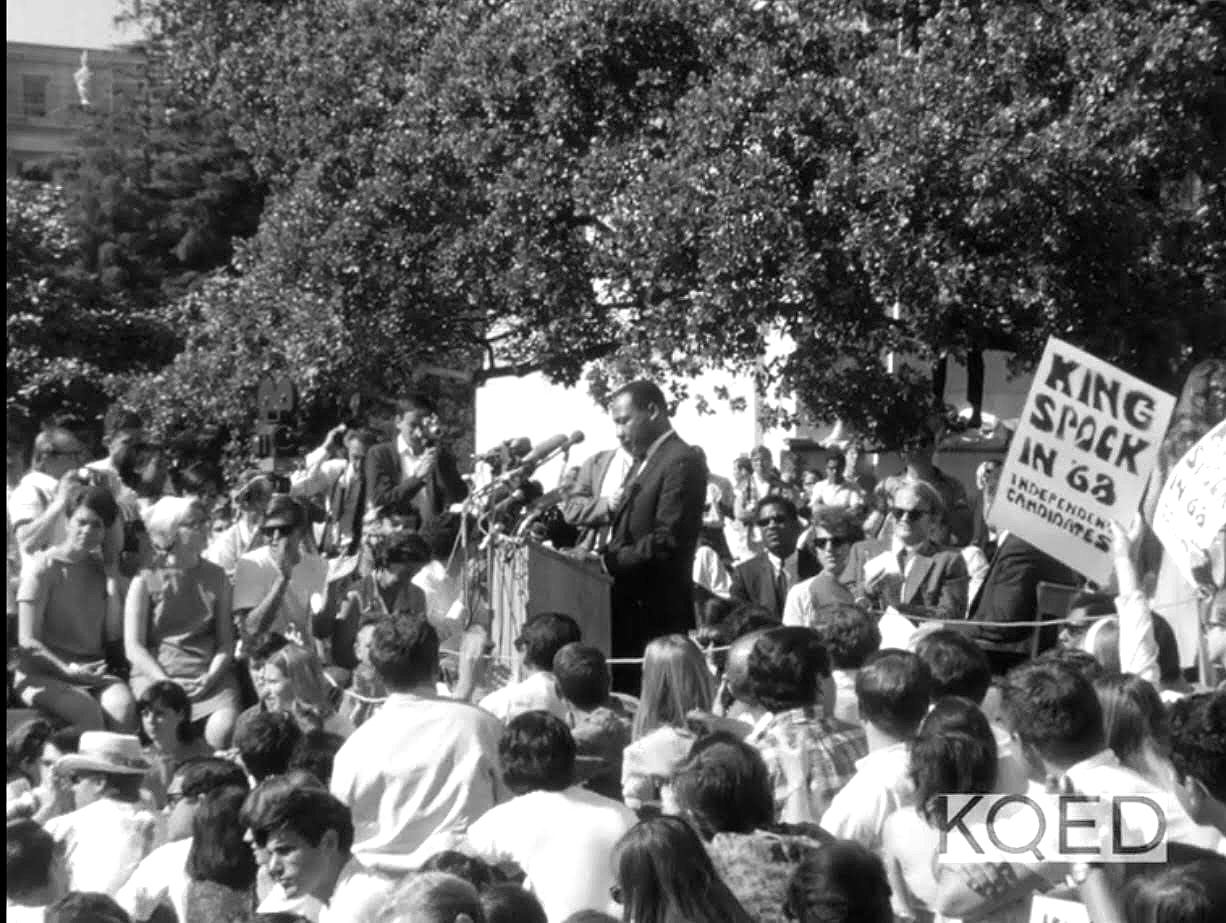
Demetric Muhammad said the reason the real story of Dr. King is untold is because of the corruption of Black history and those who work to reduce the potency of that history.
“Meaning that you learn of Dr. King, but you may not necessarily be inspired as a revolutionary when you study Dr. King, because they don’t give you all of Dr. King,” he said. “They don’t show you the evolution of the man. They don’t show you his budding relationship with the Nation of Islam. So the reason that we don’t see the Dr. King from ‘63 through ‘68 is because there are many young people who would be inspired in a revolutionary direction if they could learn that Dr. King was growing in a revolutionary direction.”
Mr. Smiley said it saddens him to think that Dr. King died having no idea how his name would be lifted up years later.
“He was toxic. Nobody wanted to be around him. Everybody had abandoned him. He had no idea, could never have imagined when he died, when he was killed, that all these years later, he’d be a national and international hero,” he said. “He could never imagine there would be a holiday named after him, or a monument in Washington on the National Mall where he was going to camp out with Resurrection City, his Poor People’s Campaign. And schools named after him and streets and bridges and libraries.”
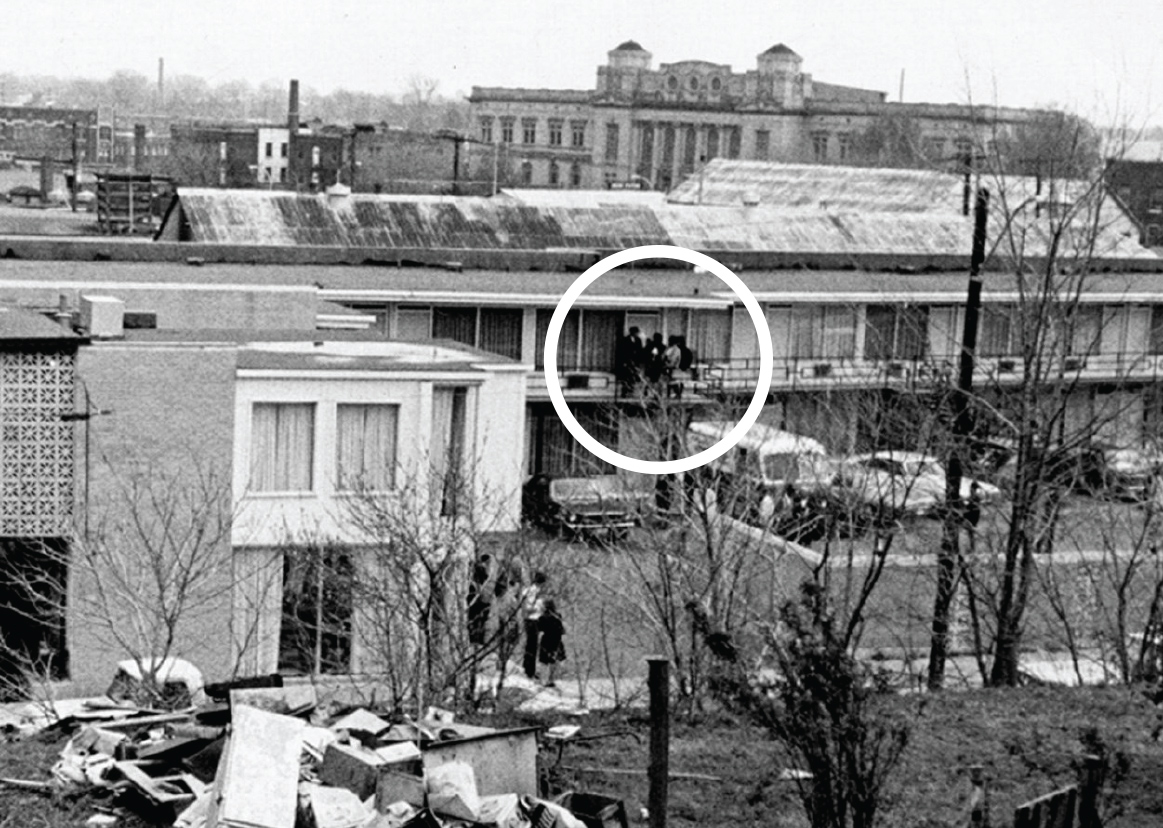
People don’t really know Martin King until they look at him in the last year of his life, added Mr. Smiley.
“It’s easy when everybody’s cheering your name and you’re winning awards and you’re on the cover of magazines and you’re a hero to many people for leading this movement. It’s easy when everybody’s with you. But we come to know who we really are in the darkest hours of our lives,” he said. “When everybody’s turned against us, when standing in your truth becomes terribly uncomfortable, these are the moments when we learn who we really are, in our darkest hours.”
“And in the dark hours of his life, when everything and everybody had abandoned him and isolated him, we see who King really is,” he continued. “What we see is that he does not back down. He stands in his truth. He doesn’t compromise. He doesn’t give in. He doesn’t give up. He doesn’t give out. And he went down swinging.”












